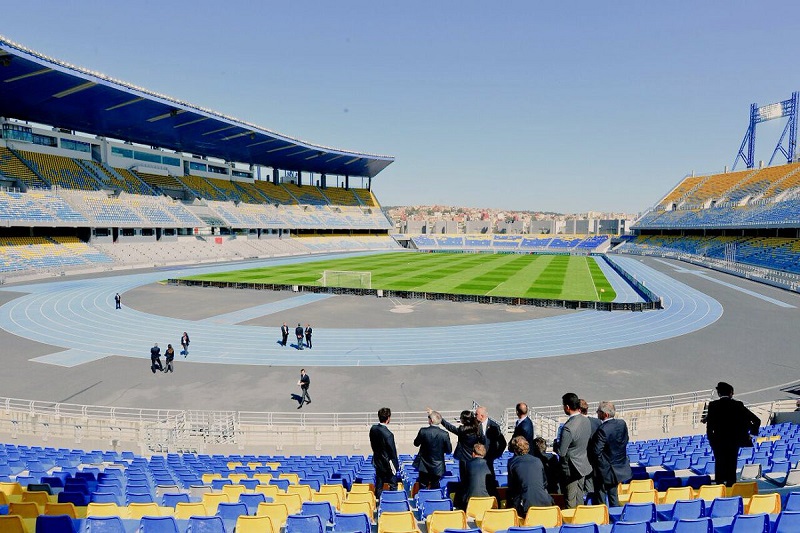
FIFA are to pay more scrutiny to Morocco’s bid for the 2026 World Cup after expressing some concerns over hotel capacity and the readiness of stadiums to host matches following the completion of a visit from its Evaluation Task Force.
The group from the world governing body had spent four days inspecting details of the ambitious bid from the North African country.
They visited Marrakech, Agadir, Tangier and Casablanca.
The FIFA Evaluation Task Force visited five cities this week “and noticed some deviations from the initial planned programme,” admitted Moulay Hafid Elalamy, President of the Morocco 2026 bid.
They “asked questions about reliability of accommodation projections…and the plans for the transformation of stadiums,” he added.
Elalamy claimed the Task Force showed “admiration for our dossier” but “made some remarks about the non-compliance of some of the stadiums,” according to Agence France-Presse.
“Our experts are in discussions with FIFA.
“So next week, FIFA will send to Morocco experts to talk to us about possible solutions for accommodation and stadiums.”
The FIFA Evaluation Task Force visited four cities in Morocco during their inspection of the country’s bid for the 2026 World Cup, including Tangiers, but are set to return to carry out further scrutiny ©Twitter
The FIFA Evaluation Task Force visited four cities in Morocco during their inspection of the country’s bid for the 2026 World Cup, including Tangiers, but are set to return to carry out further scrutiny ©Twitter
Morocco has bid four times in the past for the World Cups of 1994, 1998, 2006 and 2010, awarded to the United States, France, Germany and South Africa respectively.
For their fifth attempt, they are planning 12 hosts cities and 12 stadiums.
Elalamy, however, claimed that the FIFA Task Force had Morocco’s bid and understood that it “is a country in full development, in full construction, with a clear vision, where the World Cup is a tool for the accelerating development projects at all levels”.
He also claimed the delegation expressed its satisfaction over Morocco’s concept of modular stadiums.
Morocco 2026 had previously openly criticised FIFA, claiming the organisation had changed the scoring system just 24 hours before they officially submitted their bid.
The changes to the scoring system see infrastructure, including stadia and hotels, account for 70 per cent of the initial score given to a bid before it can qualify to enter the ballot.
The new scoring system puts Morocco at a disadvantage, it is claimed, and has been viewed by some in the country as a tactic to throw them out of the race in favour of their sole rival, a joint bid from the US, Canada and Mexico, who the FIFA Task Force visited last week.
Elalamy, though, claimed he had been told by members of the FIFA Task Force that they had expressed their total “willingness to support the efforts” of both the Moroccan and the United bids.
Every FIFA Member Association, aside from the bidding countries, will be able to cast their vote at the Congress in Moscow on June 13, the eve of the start of this year’s World Cup in Russia.
French Football Association President Noel Le Graet explained why his country will support Morocco.
“FIFA are visiting Morocco this week to check if the pitches are ready and whether, on a technical level, Morocco can be a candidate,” he told Agence France-Presse.
“If Morocco is retained [as a candidate], the French Football Federation will support it,
“Africa has often been neglected, history has only given it one competition.
“Morocco is today a very developed country and it has, in my opinion, all the qualities to do it.”
































